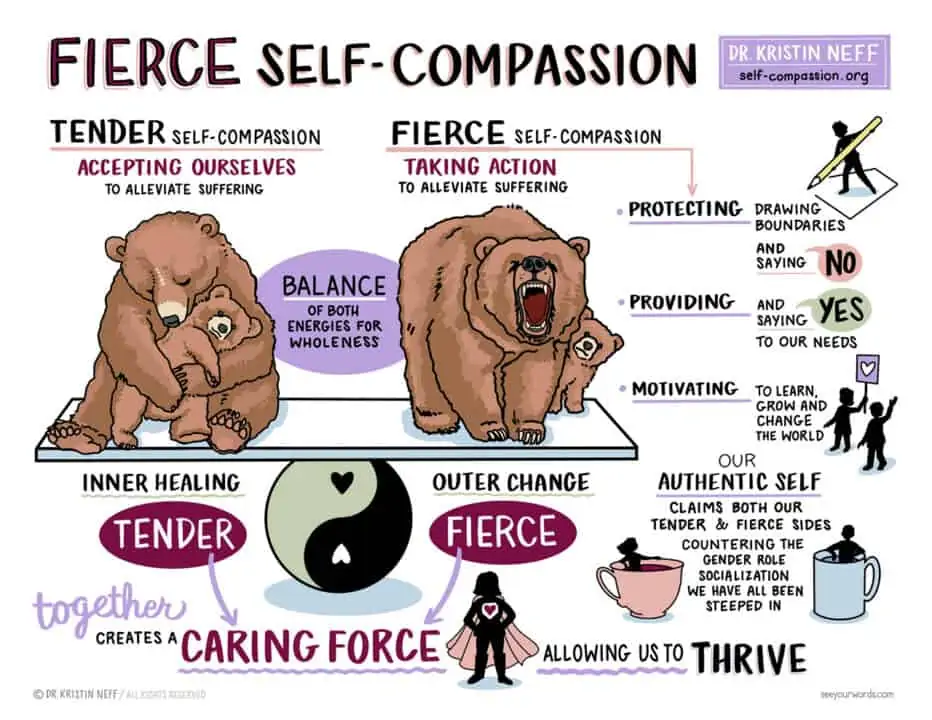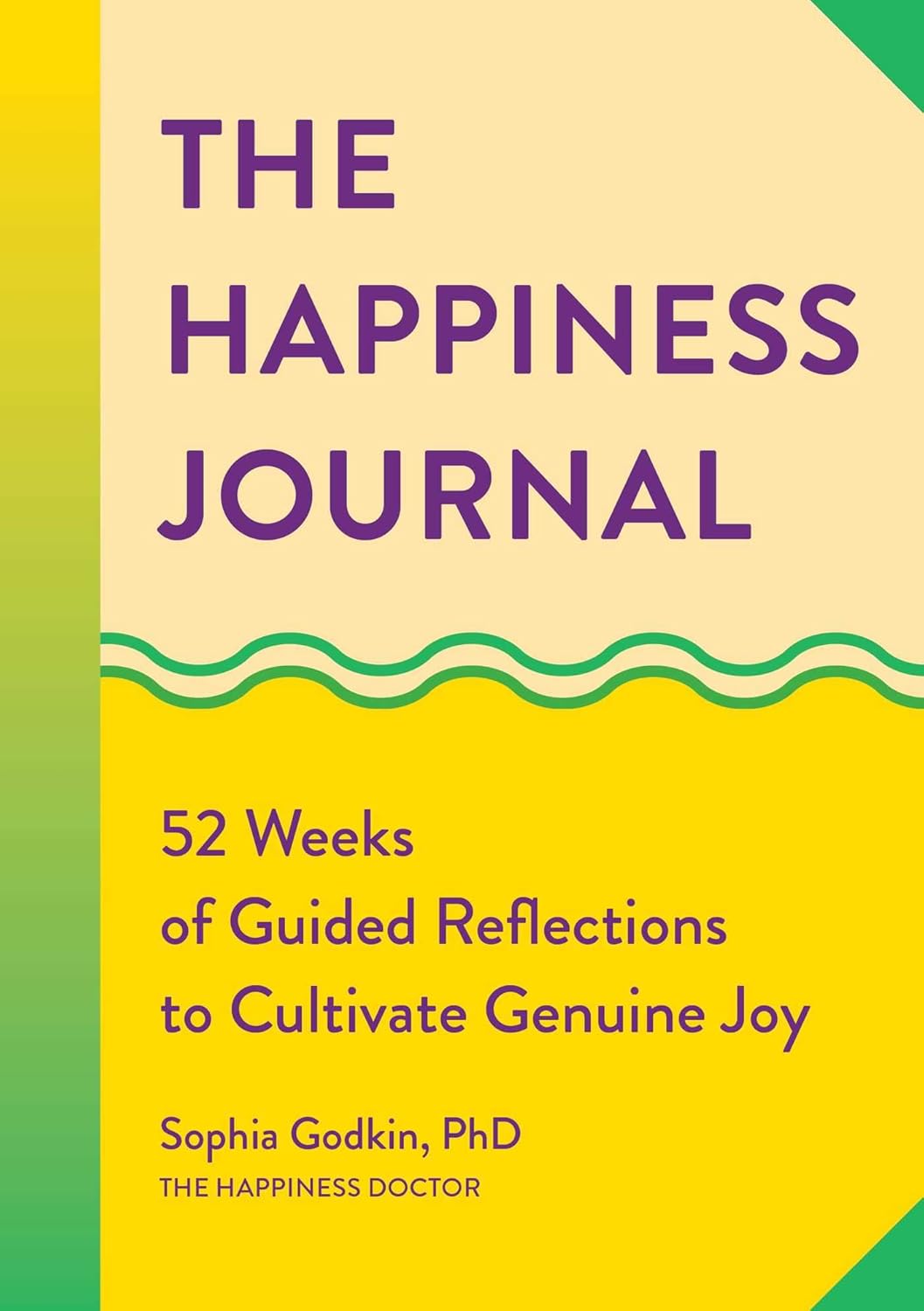Today's Friday • 8 mins read
— By Sophia Godkin, PhD.
Before we learn how to grow self-compassion, we need to go back to our childhoods. As children, many of us were taught that self-judgment and self-criticism can get us to become more successful and happy individuals.
But unfortunately, we got it all wrong.
Self-judgment and self-criticism, whenever they happen, actually leave us feeling helpless, unmotivated, and ill-prepared to handle the challenges of the world around us.
Because they work through the fear of failure, a sense of perfectionism, and a feeling that they’re not good enough.
Let us suggest a better approach: growing your self-compassion. Self-compassion is our ability to feel and understand our emotional experiences without judgment or criticism.
According to Kristin Neff, associate professor of educational psychology at the University of Texas, who created the Self-Compassion Scale:
Self-compassion also involves offering nonjudgmental understanding to one’s pain, inadequacies, and failures, so that one’s experience is seen as part of the larger human experience.
How To Grow Your Self-Compassion And Happiness
So, self-compassion strengthens motivation, builds emotional well-being, and helps relationships. You can learn to be better at it.
Here are five simple steps you can take to become more self-compassionate and self-loving right now.
1. Tend To The Way You Are Feeling
Stop everything you are doing, prioritize yourself, and let yourself feel.
Oftentimes, we experience events and associated feelings that beg for self-compassion, yet we gloss over them and continue on with life just as is. These feelings, however, are your heart and soul speaking to you, letting you know something doesn’t feel good.
Feelings are messengers and just like the mail that appears on your doorstep or the instant message that pops up on your phone, need to be opened and read.
Let yourself know that it is okay to feel, that feelings need not be suppressed, and ask yourself “How am I really feeling right now?”
As you do, let the answer arise in whatever way it does, whether a verbal expression (as a grunt or vocalization of “I’m sad”), a physical action (as stomping your feet on the ground in frustration), a physical sensation (as a tear dripping down your cheek), or simply a knowing.
Feelings are messengers, and just like the mail that pops up on your phone, they need to be opened and read.
2. Separate Yourself From The Critical Voice In Your Head
Catch yourself talking about yourself in unkind words.
Notice the unkind words that you automatically and unconsciously use to refer to yourself. And acknowledge that this habit was formed through your interactions with other people through childhood and adolescence.
Understanding that every negative remark your mind has made about you in the past was simply conditioned (that is, internalized by you as a child from the often critical voices of the adults around you) and therefore unmerited can give you the tools to turn self-criticism into self-appreciation.
Begin by separating the critical voice from who you really are. Scientific studies suggest that it may help even to refer to yourself using third (“you”, “she”, “he”, or your first name) rather than first-person pronouns (“I”, “me”, or “my”).
Recognize that the unkind words you silently or quietly speak to yourself are a function of what you learned while growing up; they are not you. You deserve to be spoken to with care, kindness, and support.

3. Tune Into Your Heart
You always seem to have a deep desire to approach situations with logic and reason. But now we ask you to choose, for just a moment, to leave rationality aside. You can always come back to it later. As long as you are operating from the thinking mind, the feelings and intuitions that live in your heart tend to get clouded.
Know that your intellect is bound by what you do and don’t know, by what you have and haven’t yet experienced. And all the fears that come along with it. But your heart has no such boundaries; it only knows love.
So just for now, put your hand on your heart and tune into the wisdom that lives there. Once the wisdom of your heart reveals itself to you, and when you act on it, you grow self-compassion and become naturally good to yourself.

4. Stop Judging Yourself Negatively
For once, you will do fine to stop judging yourself in harsh tones and negative hues.
Do you have imperfections? Sure. Do we all have imperfections? Sure. Are you and everyone else on the planet all nevertheless worthy, wonderful, and deserving of love? Absolutely.
The next time you catch your mind saying “I’m not good enough”, “I’m not important”, “I’m a failure”, “I’m unlovable”, or whatever the equivalent happens to be for you in that moment, question it, challenge it, and change it.
Ask yourself “Is this really true?” and “Is there evidence in my life that contradicts this?” to get your mind out of the habit of accepting each thought as absolute truth. Once you recognize your imperfection as perfection, you grow self-compassion.
5. Befriend Yourself
This is perhaps the best way to grow self-compassion: Be your own friend.
When your friend is hurting and something in life leads them to feel sad, angry, or frustrated, what do you do? What do you say? What do you make sure not to do or not to say?
Learn to treat yourself as you would a friend. It might feel silly, but thinking and relating to yourself as your own friend reliably builds self-compassion. If this feels difficult at first or you just don’t know where to begin, ask yourself this:
“If I really loved myself, what would I do for myself in this very moment?”
Then, and most importantly, give yourself what you need.
Call a friend and talk for hours, take a walk in the park, lay your head on the pillow and cry, or eat your favorite sweet treat. Whatever it is, do it knowing that it isn’t selfish and it isn’t self-indulgent. It is, however, extremely beneficial and even necessary if you are to live a life of joy.
So, stop being hard on yourself. Instead, build a voice of self-kindness.
3 Benefits of More Self-Compassion
As it turns out, self-compassion is one of the most important predictors of satisfaction in life. Here are three big life changes you can expect when you turn self-compassion into a daily habit (find out how habits get formed in the brain, and how to take advantage of the 3 R’s of habit formation):
1. Increase In Motivation
Your motivations will soar. The common belief that self-compassion leads to self-indulgence, laziness, and a lack of motivation — is a myth.
In actuality, being self-compassionate strengthens motivation and helps you to see yourself as more competent.
2. Boosting of Emotional Well-being
Your emotional well-being will get a boost. Self-compassionate people, the scientific literature reveals, have an overall greater sense of well-being.
Compared to those who lack self-compassion, self-compassionate people have greater emotional resilience and stability and less perceived stress and negative emotions.
Being self-compassionate also helps you to have a healthy, adaptive response to life’s challenges.
As you become more self-compassionate, you are more likely to use emotion-focused than avoidance-focused coping, tending to (rather than denying) your emotional experience.
And when it comes to mental health, the more self-compassionate you are, the less likely you are to experience depressive symptoms, anxiety, and stress.
3. Improved Quality of Relationships
Your relationships will improve dramatically. According to science, if you want to enhance your relationships, practice self-compassion.
Those positive relationship behaviors (like being authentic, caring, supportive, and willing to compromise) that scientists say lead to healthy dispute resolution – you’re far more likely to have them if you are self-compassionate.
It turns out that learning to “swipe right” on yourself before you swipe right on others immensely benefits your relationships.
And it could very well be the practice that keeps you happily married rather than divorced.
Final Words
The fact of the matter is: You can never be too good to yourself. The most important relationship in this life is the one you have with yourself. And it’s time we all recognized that.
There is no sense in punishing your future for the mistakes of your past. Forgive yourself, grow from it, and then let it go. — Melanie Koulouris
• • •
Author Bio: Sophia Godkin, PhD is a Health Psychologist, Happiness & Relationship Coach, best-selling author, university professor, and head of learning at national and international wellness companies.
√ Also Read: What Self-Kindness Really Means? How To Have More of It?
√ Please share it with someone if you found this helpful.
» You deserve happiness! Choosing therapy could be your best decision.
...
• Disclosure: Buying via our links earns us a small commission.
